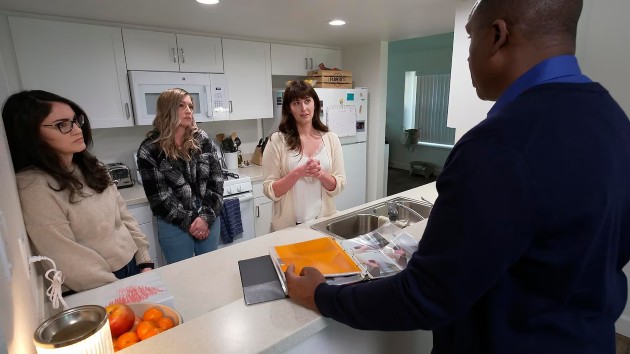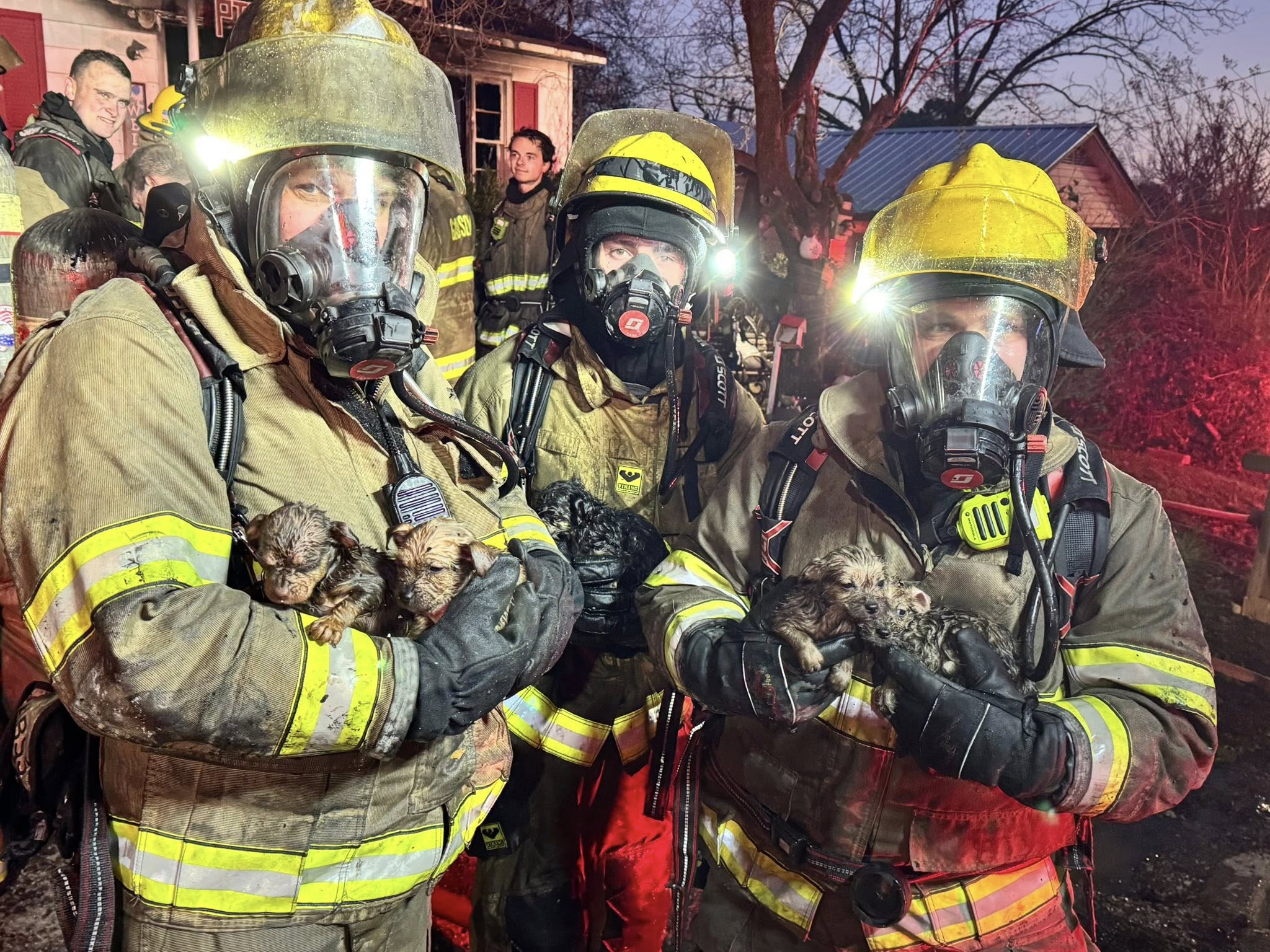
(WASHINGTON) — Moving cross-country from the Carolinas to California, the Reeder family looked forward to its next assignment in San Diego in the summer of 2022. The couple had originally met in California.
But in the first week, after the Marine Corps Gunnery Sergeant and his family had settled into their new home, they had to move out and into a hotel temporarily.
“The first thing you know, military families want to see is, where can my furniture fit?” Antoinette Reeder, whose husband has served for nearly 19 years, told ABC News. Before they unloaded any furniture, Reeder said she started to notice an ant infestation and a strong musty smell coming from the bathroom. She said that was her first hint that mold could be in the home.
Reeder said she knew the smell because she faced similar issues in their former military housing on the East Coast.
“I already knew the protocol,” Reeder said. “[…] When we moved in here, though, we were given a card that said that our home was inspected by a military housing inspector. And it was passed off. It was checked with the box that it passed. And it was just astonishing to me.”
“If it’s happening in all of these different places, this has gotta be a really big issue,” Reeder said.
Issues, such as water intrusion and mold, within their privatized military-provided housing has caused eight home remediations for the family in nearly three years, Reeder said. The repairs are often disruptive. The family says their children have suffered from rashes and respiratory issues.
Reeder said she feels healthier and breathes easier when she leaves her home. She has had her home tested independently for mold and used moisture meters to monitor conditions firsthand.
“My husband’s command has been very helpful, but they’re not involved,” said Reeder, outlining the rigorous process to file disputes involving a series of offices with both the military advocates and private companies that extends beyond servicemembers’ direct leadership.
Some families dealing with similar issues say they often have to pay out of their pockets for expenses that result from displacements. This is a problem currently for Shae Anderson, another military spouse of a Navy chief petty officer, also located in San Diego.
Anderson said her family is in its third housing remediation in a home they moved into in October 2024. They have lived through the disruptions of other home repairs while stationed at military installations. She said her youngest child struggles with rashes and conjunctivitis, which she believes may be caused by exposure to mold in their military homes. Other members of her family have struggled with respiratory symptoms, Anderson added.
“Our experiences have been traumatizing, and we have had so many disruptions to our quality of life,” Anderson told ABC News. “Our children have had to move schools, my husband’s career has been impacted and our family has suffered so much financial loss due to it all.”
While living in San Diego, Anderson and Reeder met and bonded over a common problem, mold in their homes. Along with the two women, Audrey Kray, the wife of a Marine Corps Staff Sergeant, has also been involved in bringing awareness through the nonprofit, “Safe Military Housing Initiative.” The military wives have binders documenting deteriorating conditions and what they describe as substandard housing.
Anderson’s son drew a heart on her notebook binder, which she says, “it’s just a little reminder, every time I go to my notebook and I’m going through and reliving the horror experience we’ve been through, the reason that I’m fighting. And that’s for my kids. I also want every service member and their family to have a safe home.”
These families have lived in homes managed by Liberty Military Housing, the largest employee-owned and Navy and Marine Corps housing provider.
“In my instance, it shouldn’t have taken four homes, three moves, two displacements over 15 months. That should have been day one for us,” said Kray.
“It’s very challenging when husbands are deployed or off on training and you’re going through these housing experiences,” Kray said.
All three women have worked with military advocates who lean on the private housing companies that own these homes to come and fix the problems.
Liberty, their landlord, have offered each family new housing while remediating their properties, but they keep facing similar housing issues, the families said.
The military spouses also told ABC News that the disruption of having to pack again and change homes alone is a challenge after moving bases and assignments. In one instance, Reeder said she noticed mold behind vanities that were being replaced by contractors, alarming her and prompting assistance from the district office and an environmental team to conduct tests.
The issues date back nearly three decades, to the Military Housing Privatization Initiative of 1996. When the Department of Defense got out of the housing business with the MHPI, it was trying to solve a major problem. Government reports from the time showed that a majority of military homes already needed significant repairs. The agreements with the private industry were made because those housing companies offered better expertise than the U.S. military to renovate or replace inadequate housing. And according to congressional research, the government gave the companies contracts that are sometimes 50 years long, to incentivize the massive undertaking. In creating the agreements, the privatized contracts affect how far the government can push these companies to take certain actions today.
In 2023, the U.S. Government Accountability Office identified several unresolved concerns with the Military Housing Privatization Initiative. One of them was the need for a more formal dispute resolution process. GAO also raised that some of the private housing companies may be lacking compliance with elements of the Tenant Bill of Rights established in 2020, among other recommendations.
“I know firsthand that our warfighters cannot deliver if they are sidelined by problems at home, especially those that can negatively affect health and quality of life,” Assistant Secretary of Defense Dale Marks said in a statement to ABC News. “Secretary Hegseth and I are committed to rebuilding military readiness and appreciate the support from Congressional committees to make much-needed housing reforms.”
Today, there are about 14 private companies with MHPI contracts that provide about 200,000 homes for service members and their families.
Through what’s called the Basic Allowance for Housing (BAH), the majority of servicemembers receive a tax-free housing allowance, which helps them cover the cost of rent. BAH rates vary due to rank, whether the servicemember has dependents, and the geographical location of the current duty assignment.
Current BAH policies are intended to cover 95% of estimated home costs in the civilian market, but in most cases, the money stretches the farthest in military housing, compared to housing for rent in the civilian world. Some DOD officials and military families have questioned whether the BAH rates for some locations are enough, according to congressional research conducted in 2023.
For many of these families dealing with mold and other issues, they feel they can’t afford to leave military housing.
“We would have to move very far away from where my husband works in order to afford anything,” said Reeder, who raised concerns with the rising costs of the housing market in Southern California.
These military wives said factors like commute time, distance from medical providers and school districts influence families’ decisions to stay in the surrounding base area, in addition to the benefit of community living near other servicemembers and their families.
In response to the experiences of these families in San Diego, the chief executive officer Philip Rizzo of Liberty Military Housing told ABC News in an interview, “We’re not profiting off military families by cutting corners.”
Rizzo stressed that these complaints are not the “norm” with properties under Liberty’s management.
“I think the challenge with 36,000 homes nationwide is if we’re 99% right, that means there is 360 families that aren’t having a good experience. That’s a large number, right?” Rizzo said. “And I would expect if we’re 1/10 of 1% that’s a large number, and our goal is to be zero. We want everybody to be satisfied. We want everybody to be happy in their home.”
As an Army veteran and son of a career U.S. Air Force officer, who grew up in military housing, Rizzo emphasized he didn’t want anyone living in an environment where they are becoming sick. He emphasized that since the 2019 congressional hearings about these concerns, the government has added more oversight over companies like Liberty, focusing on identifying gaps in the repair processes.
He says Liberty Military Housing has since implemented new training for its workers and contractors, and says the company has an average maintenance response time that beats anything in the civilian world. He also points out that his tenants have a formal dispute process internally and can also be navigated with a military resident advocate.
“We’re going to do what we can, following industry guidance and guidelines to eliminate any hazards or risk in the home,” Rizzo said.
Rizzo told ABC News that he knows there will be challenges with both new builds and older houses. He said Liberty Military Housing is committed to responding quickly and effectively to minimize disruption for families.
Reeder hopes for change. “This isn’t just us complaining about ‘we have mold’ and ‘our house is dirty,'” she said. “We have scientific results showing this is a problem and it’s affecting our health.”
Jenny Wagnon Courts contributed to this report.
Copyright © 2025, ABC Audio. All rights reserved.




